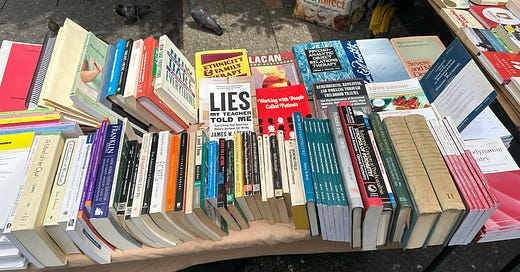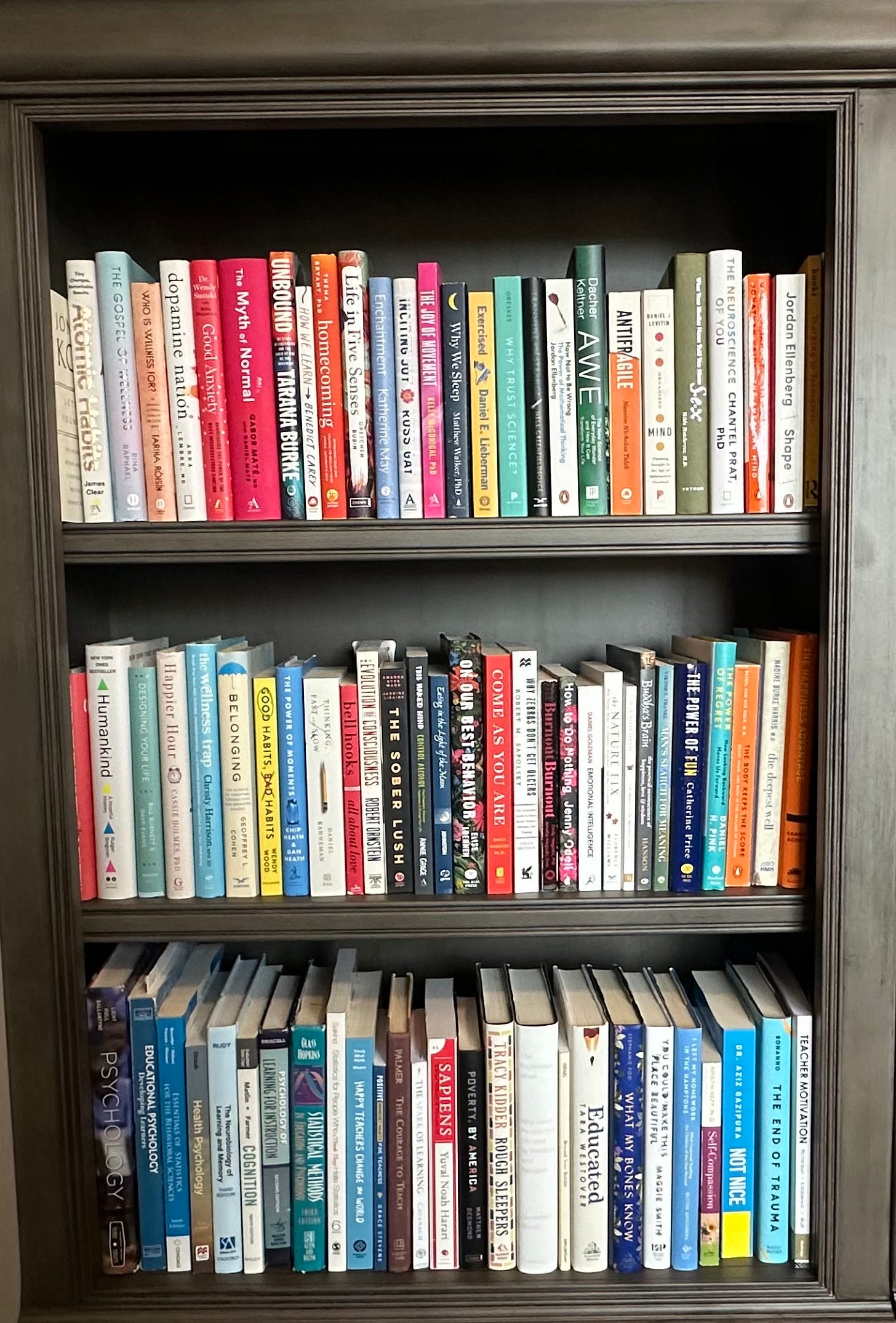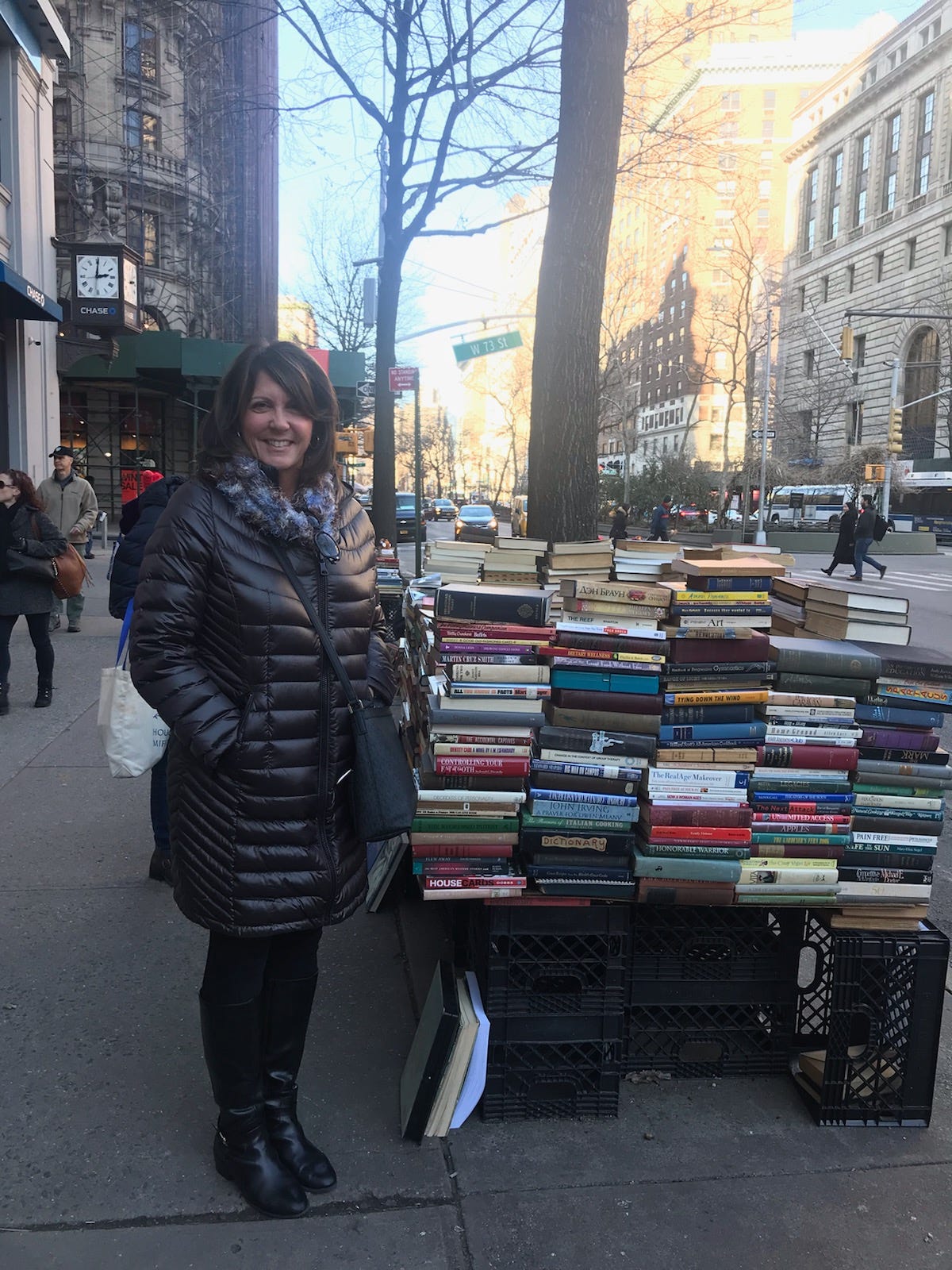After finishing a run in New York City last month with my husband, I stumbled upon a streetside bookseller on Central Park West. Usually I simply breeze by street vendors in the city selling jewelry or I ♥ NY t-shirts, but I stop hard for books. My husband often tries to gently guide me by the elbow away from such tables while pleading, “Come on, let’s go.” His efforts are usually for naught.
He has some cause for worry, owing to an incident years back involving a Chinatown purse vendor in the city. Somehow our extended family, which included six children and his mother in a wheelchair, ended up being lured into a lower east side studio apartment furnished with nothing but knock-off designer bags. We left with no purses that day, just our lives for which we were thankful.
But this particular book display near the park caught my eye. One whole table was filled with old psychology books, with a seeming emphasis on Sigmund Freud and psychoanalysis. I immediately wondered, “Where did these books come from?” I envisioned the books were from the estate of one previous owner - maybe an upper west side psychotherapist who saw patients in the spare room of her classic six apartment. Please lie down on my couch, won’t you?
One book on the table was a later printing of Freud’s The Interpretation of Dreams, which was originally published in 1900. Another was the two-volume The World of Psychoanalysis from 1965. Alongside older books was a relatively more recent 2009 Complete Guide to Prescription and Nonprescription Drugs. You can tell a lot about someone by the company of books they keep. It makes me wonder - What would my bookshelf say about me, should its contents find their way to some street book table in the future?
A Freudian might note that some books on my shelves are driven by the more parental superego (e.g., The Neurobiology of Learning and Memory) and others are pure, playful id (e.g., The Sober Lush). But a psychologist à la James Marcia might identify my professional identity status as in moratorium, meaning a full-on identity search is still underway.
After all, I have books like The Evolution of Consciousness sharing shelf space with All About Love by bell hooks. On my bookshelf, Why Trust Science piques my interest as much as Come Together, a book on sexuality in long-term relationships. In other words, if all my psychology books were placed for sale on a street in the Big Apple, there would be no indication the books came from just one person.
And that’s okay with me. One of my mentors used to encourage me as a new educational psychologist to “find my tree.” The trunk of the tree is supposed to represent one main psychological interest, and four or five branches of the tree are offshoots from that scholarly line. For example, the aforementioned upper west side therapist’s trunk appears to be Freudian psychoanalysis, with some branches such as psychopharmacology and childhood trauma jutting out.
My own trunk might be best described as “Psychology? Yes!” and the branches include many areas in psychology: educational, positive, health, developmental, cognitive, social, statistics, this list goes on . . . I used to be concerned that I lacked focus, a line of study that I can call my own. But now I know that curiosity and love of learning are the deep roots of my real tree that supports many limbs of wild interest. And that’s why I can’t resist any gathering of books on the streets of the city.






